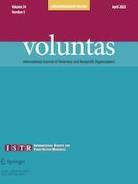
What channels can an authoritarian state employ to steer social science research towards topics preferred by the regime? I researched the Chinese coauthor network of civil society studies, examining 14,088 researchers and their peer-reviewed journal articles published between 1998 and 2018. Models with individual and time fixed-effects reveal that scholars at the center of the network closely follow the narratives of the state’s policy plans and could serve as effective state agents. However, those academics who connect different intellectual communities tend to pursue novel ideas deviating from the official narratives. Funding is an ineffective direct means for co-opting individual scholars, possibly because it is routed through institutions. Combining these findings, this study proposes a preliminary formation of authoritarian knowledge regime that consists of (1) the state’s official narrative, (2) institutionalized state sponsorship, (3) co-opted intellectuals centrally embedded in scholarly networks, and (4) intellectual brokers as sources of novel ideas.

